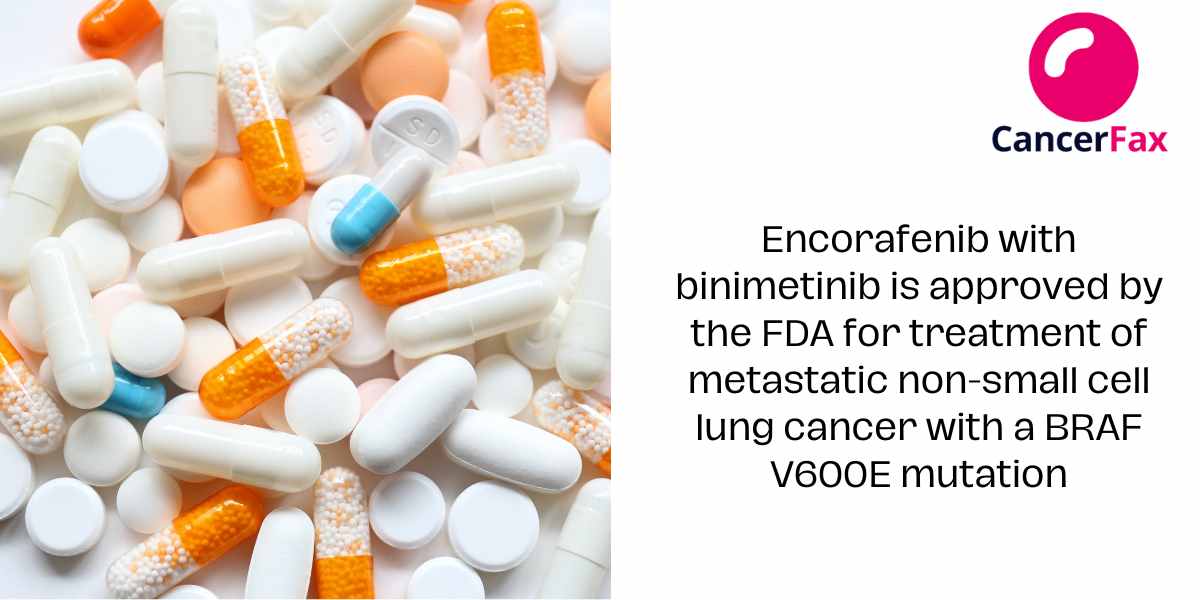The Food and Drug Administration (FDA) approved Encorafenib (Braftovi, Array BioPharma Inc., a wholly owned subsidiary of Pfizer) and binimetinib (Mektovi, Array BioPharma Inc.) in November 2023 as medicines that can be used to treat adults with metastatic non-small cell lung cancer (NSCLC) and a BRAF V600E mutation, which was found by an FDA-approved test.
The FDA also approved the FoundationOne CDx (tissue) and FoundationOne Liquid CDx (plasma) as companion diagnostics for encorafenib in conjunction with binimetinib. Testing of the tumour tissue is necessary if a plasma specimen does not reveal any mutations.
The open-label, multicenter, single-arm PHAROS (NCT03915951) study looked at 98 people with metastatic NSCLC and the BRAF V600E mutation. The study’s effectiveness was tested on these people. Prior use of inhibitors of BRAF or MEK was prohibited. Encorafenib and binimetinib were administered to patients until disease progression or unacceptable toxicity occurred.
An independent review committee evaluated the duration of response (DoR) and objective response rate (ORR), which were the main indicators of effectiveness. The ORR was 75% (95% CI: 62, 85) among 59 treatment-naïve patients, while the median DoR was not estimable (NE) at 95% (95% CI: 23.1, NE). The ORR was 46% (95% CI: 30, 63) among 39 patients who had been treated previously, and the median DoR was 16.7 months (95% CI: 7.4, NE).
Fatigue, nausea, diarrhoea, musculoskeletal pain, vomiting, abdominal pain, visual impairment, constipation, dyspnea, dermatitis, and cough were the most frequent adverse effects (25 percent or more).
For NSCLC mutated to BRAF V600E, the recommended oral doses of encorafenib 450 mg once daily and binimetinib 45 mg twice daily are administered.


